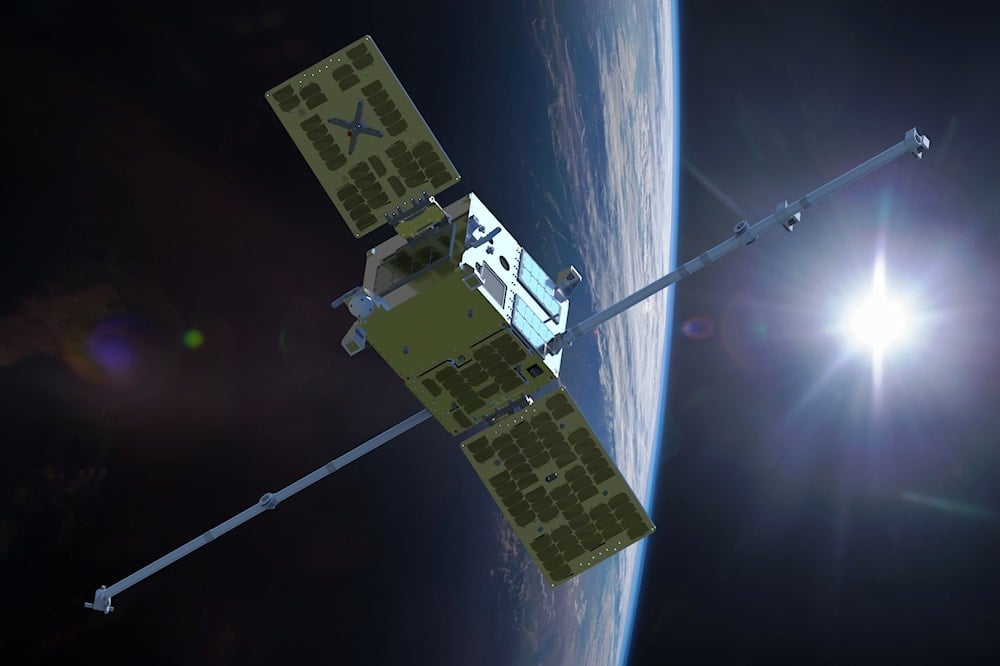Europe firms agree on satellite merger to counter Starlink
Airbus, Thales, and Leonardo have agreed to merge satellite manufacturing operations in a new joint venture aimed at boosting Europe's space autonomy and countering Starlink’s dominance.
-

Artist’s rendering of the RADICALS satellite in orbit (AP)
European aerospace giants Airbus, Thales, and Leonardo have reached an initial agreement to merge their satellite manufacturing operations, marking a significant consolidation in the continent’s space sector. The move is seen as a strategic response to the rapid rise of low-cost, low-Earth orbit competitors like Elon Musk's Starlink.
The proposed European satellite merger, which will require regulatory approval, aims to launch a new joint venture by 2027. The venture will employ approximately 25,000 people across Europe and generate an estimated €6.5 billion ($7.58 billion) in annual revenue based on 2024 projections.
Under the terms of the deal, Airbus will hold a 35% stake, while Thales and Leonardo will each hold 32.5%. The venture will operate under joint control with a balanced governance structure, the companies confirmed in a joint statement.
Codenamed Project Bromo, the initiative was modeled after the European missile maker MBDA, jointly owned by Airbus, Leonardo, and BAE Systems. The CEOs of the three companies emphasized that the merger will help ensure "Europe’s autonomy across the strategic space domain."
Europe’s satellite manufacturers, traditionally focused on high-cost, geostationary orbit spacecraft, have faced growing challenges from newer, more agile systems in low-Earth orbit. Starlink’s success has particularly pressured European firms to adapt or consolidate. The deal is expected to yield "mid-triple digit" millions of euros in annual synergies in operating income, though these gains are anticipated to begin five years after the venture's launch.
European space sector consolidation under 'Project Bromo'
The new entity will combine the manufacturing and services activities of Thales Alenia Space and Telespazio, two joint ventures between Thales and Leonardo, as well as key space and digital units from Airbus, and remaining space assets from Leonardo and Thales SESO.
The European satellite merger follows years of talks and negotiations marked by disagreements over governance and valuation. Sources indicate that although the relationship among the three companies has been complex at times, the agreement was ultimately reached following compromises over joint control.
Approval from European regulators remains a critical hurdle. Past attempts at consolidation in the aerospace and space sectors have met resistance due to competition concerns and political sensitivities over national interests.
The companies did not announce any new job cuts but acknowledged that unions would be consulted as the deal progresses. Collectively, Airbus, Thales, and Leonardo have already cut around 3,000 jobs in space-related divisions over recent years.
The announcement underscores Europe’s broader ambition to secure greater autonomy in critical space technologies. With the US and China heavily investing in next-generation space infrastructure, European leaders view industrial consolidation as a means to stay competitive on the global stage.

 3 Min Read
3 Min Read








